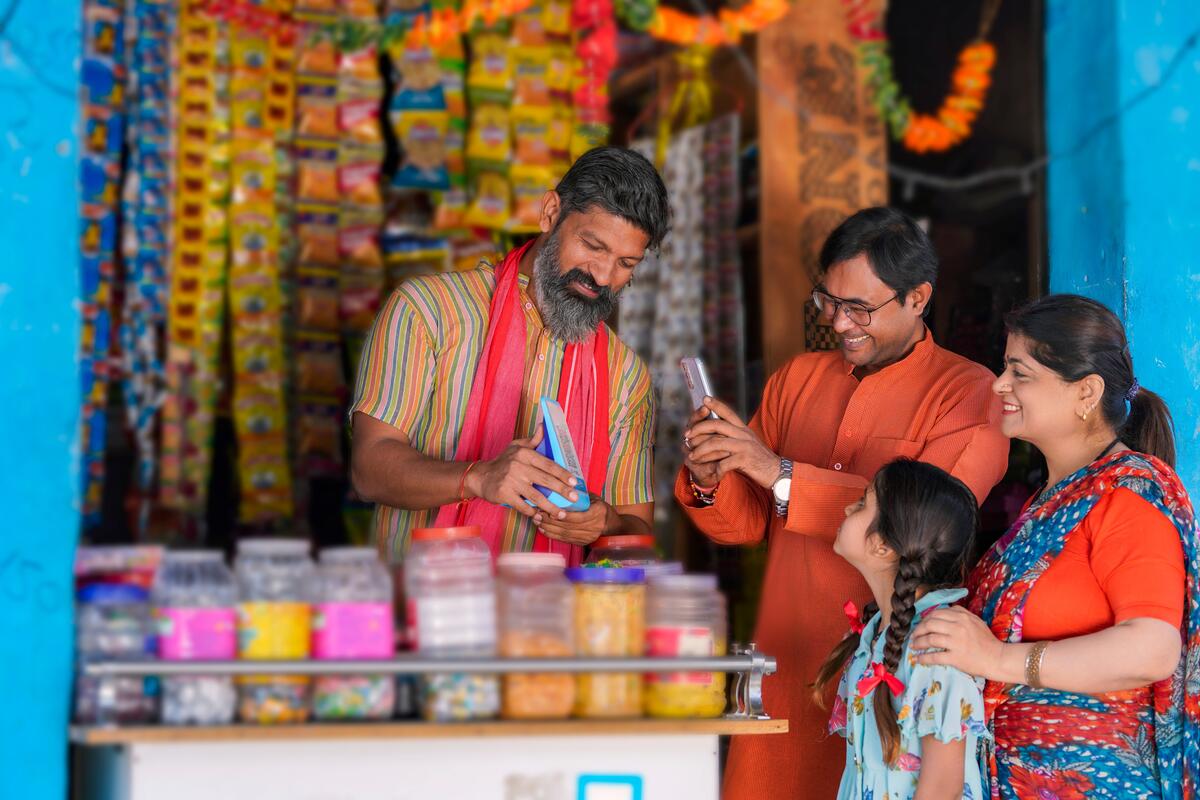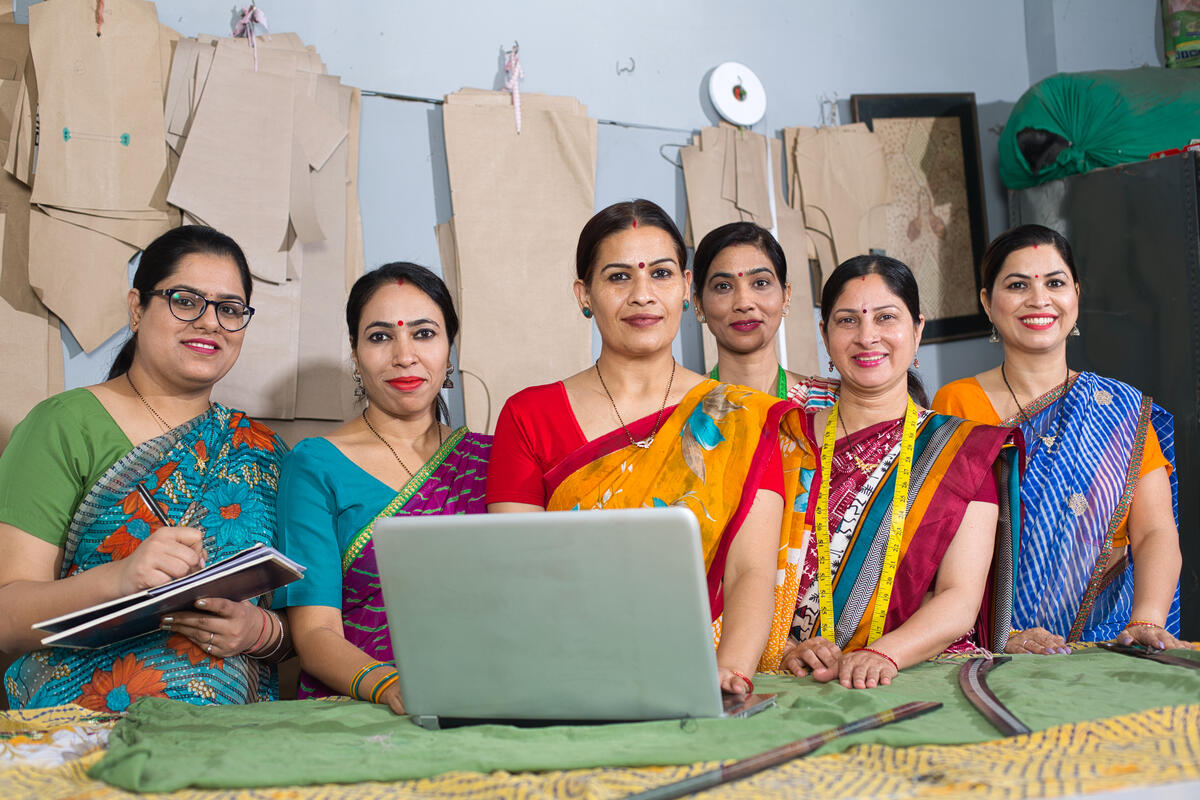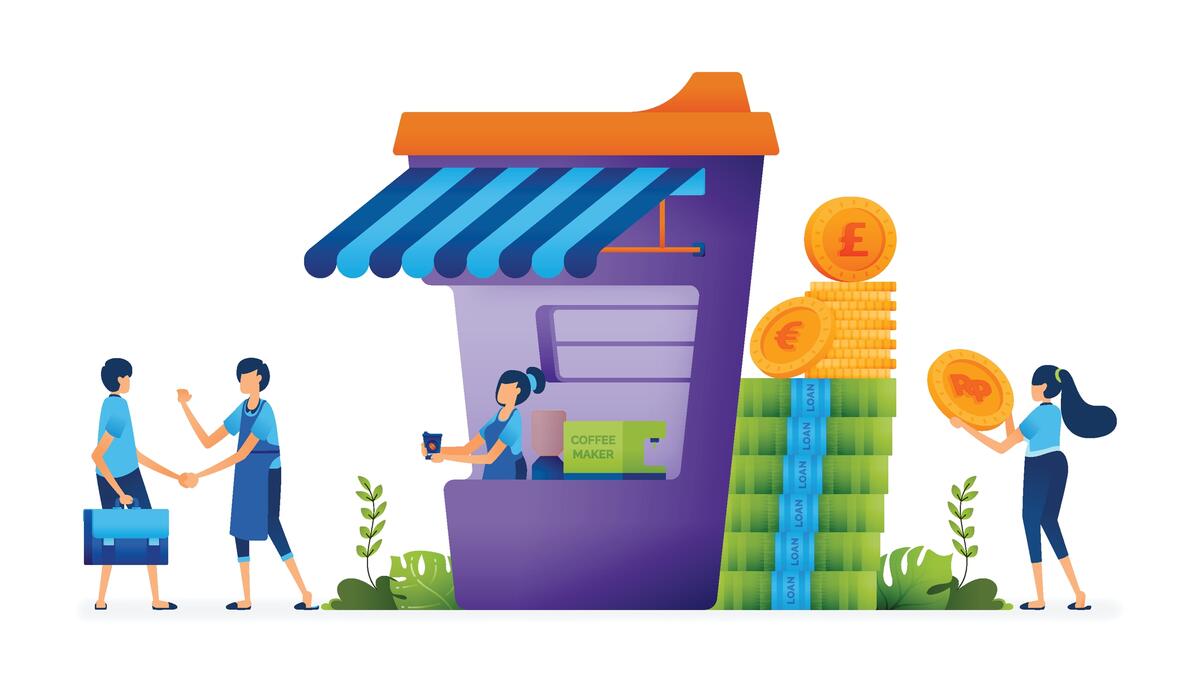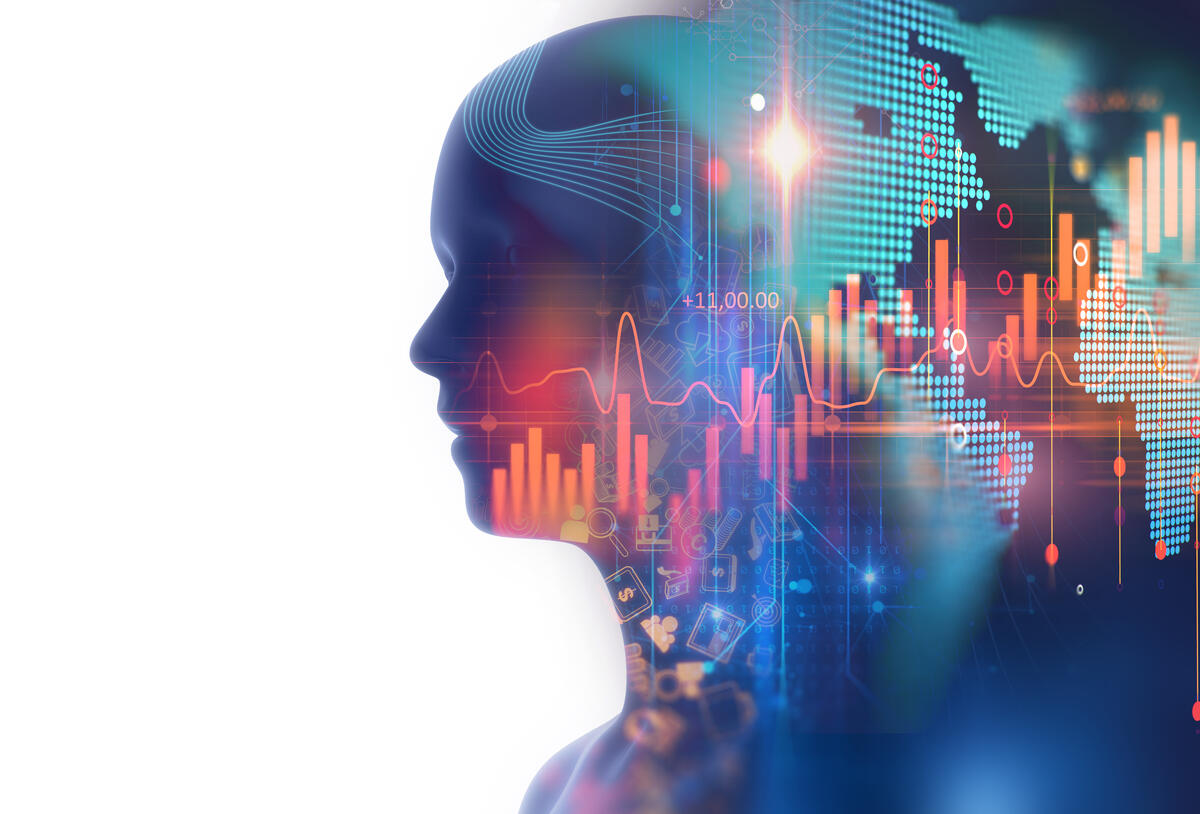Blog
Devril Tavil from TEB Bank on Providing Non-Financial Services to SMEs in Emerging Markets

The following questions were submitted by the members of the SME Finance Forum LinkedIn group.
Given the regulatory constraints on SME lending resulting from Basel 3, to what degree non-financial services become essential for the competitiveness of SME focussed banks?
Devrim Tavil: We expect Basel 3 to have affirmative effects on SMEs in Turkey since they might be offered cheaper loans. Therefore we believe SMEs will take advantage of the coming circumstances. Since they are increasingly demand-driven, non-financial services will help to differentiate the bank from its competitors and advance its position in a highly competitive market. Also, our Relationship Managers are able to analyze SMEs deeply via some of our non-financial products such as TEB SME Consultants Project which creates risk awareness along with exploring the potential of the customer. They all contribute efficient customer management as you may suppose. Furthermore, we believe we will grow as much and as long as our customers grow. Thus, by contributing their development financially and non-financially, we will contribute well-being of society and economy.
In an emerging economy such as India, SME rating agencies can provide arrange of non-financial services. Are non-financial services a substitute to rating activities or a kind of business plan? Are those services given as part of SME credit facilities? Is there any cost involved for SMEs while availing these services?
Devrim Tavil: Frankly speaking, under Turkish circumstances, our non-financial services detailed in the case study cannot be provided by SME Rating Agencies due to their sui generis scope, aim, mission, vision and elaborate content. We do not try to assess SMEs in terms of their credibility via any of these non-financial services. What we aim is to contribute the development of SMEs even if they are not our customer yet.
Cross-sell is a significant part of our daily business in order to ensure long term relations with our customers. Generally, as for prospects, we use our non-financial products and services as hook products. Just then, credit facilities can be on the agenda. But for existing customers, we use our non-financial services and products as complementary to credit, investment and cash flow facilities. They provide long term loyalty by making our customers feel that we are by them all the time.
Most of our non-financial services are free of charge or with subsidized fees.
What impact do non-financial services have on the overall credit process? What are the pros and cons of outsourcing / developing internally this function? Can it, to some extent, be factored in as a credit enhancer? Under what conditions?
Devrim Tavil: Generally one should consider our non-financial products/services apart from credit facilities due to their elaborate content and aim of design. However, if we consider TEB SME Consultants Project, which is one of the leading non-financial services, we can say that since the analysis reports prepared by TEB SME Consultants are highly detailed, they affect credit processes positively and also speed up. Risk awareness of Relationship Managers is also increased by the trainings given within this project. They also ensure long term relationship; thus expand banking affairs since they deeply analyze the customer. We also expect our Consultants attach their analysis reports in credit proposals in order to facilitate credit allocation process.
Non-financial products and services are too complex to handle without business partners since they highly include organizational set-up and sophisticated engagement. To clarify, we may give an example from TEB SME Academies which is one of the non-financial services mentioned in the case study. Stating that “If SMEs cannot access information, we should provide information for them by using every channel”, we have primarily held “TEB SME Academy” in 2005. We have started travelling Anatolia city by city and visited SMEs in person to provide information they are in need of, with the help of experts. We are in deep happiness of having organized 57 events in 35 different cities and trained more than 13,500 business men and women in less than seven years. What lies beneath the success of TEB SME Academy is our cooperation with the consultant firm by which the trainings have been provided; the organization firm which contributes in branding, accommodation and other organizational issues etc. It’s inevitable to be in cooperation with other parties to design and hold satisfying services and products.
What are the different types of non-financial services that banks can offer to SME clients? How can these services help position a bank in the SME market? Can these services be adapted for specific niches (women, agribusinesses) or SME sectors/industries?
Devrim Tavil: You may refer the case study in order to get detailed information about our non-financial services offered SMEs such as TEB SME Academies, TEB SME Consultants Project, TEB SME Club, TEB SME TV and so forth. They are all outcomes of our focus point: strategy and information. As TEB, we have developed a highly successful and innovative range of non-financial services geared toward the SME market. One of the most compelling aspects of our approach is how we have been able to successfully integrate the delivery of financial and non-financial services to SMEs. Our demand-driven approach to non-financial services has helped to differentiate our Bank from our competitors and advance our position in a highly competitive market. We believe that being announced as a success story by IFC confirms that we are on the right path. Also by offering innovative and high-quality business development services we have significantly expanded our client base. This is another complementary indicator for us.
As for the last question, we have already adapted our non-financial services for specific industries and niches. We may give an example from our Future Strategy Conferences. We have realized that it is not possible for SMEs to develop apart from the sector or city they are operating in; the development of the cities and sectors has a critical role in SMEs growth as well. Thus, we have also exhausted 13 cities and Northern Cyprus Turkish Republic along with Tourism, Agriculture, Gold and Automotive sectors by “Future Strategy Conferences for Sectors and Cities” in which we bring together business men, business women, academics, bureaucrats and local administrators related with the city and/or sector. The outputs of each conference have been compiled for the disposal of city and/or sector authorities.
Do you charge for services, and if so, is there cost recovery? How about conflict of interest issues?
Devrim Tavil: As mentioned in the case study, most of our non-financial services are free of charge or with subsidized fees. As TEB, we are continuously learning from experience and using the learning to understand the impact of our non-financial services have on both SME clients and the bank. We closely monitor the cost of implementing non-financial services. Our management information systems have the capacity to track the outputs of each of our non-financial service activities, such as attendance for training events, number of monthly calls to the phone support line, number of web site hits, membership levels, and so forth. We consider them as an investment which ensures loyalty in existing customers, long term relationships, PR and acquisition of new customers.
We do not have conflict of interest issues since we offer financial and non-financial services and products as complementary of each other.
Lack of SME transparency is a common challenge for banks. To what extent are banks providing accounting services directly to SMEs (e.g., directly or indirectly by outsourcing to an accounting firm)? Further, for those banks providing this service, what are the main challenges they are facing (e.g., lack of willingness on part of SME to participate, lack of willingness in part of the SME to pay some portion of the service) and how are they overcoming them?
Devrim Tavil: We have offered Accounting Integration System a few years ago in order to support and encourage more professional accounting system for SMEs. Unfortunately, we do not provide it for the moment. However, we always highlight the importance of transparency and avoidance of non-registered transactions via our non-financial products and services.
Which non-financial services offer the highest return on investment to both banks and businesses?
Devrim Tavil: It is very difficult to measure which of the non-financial services have the greatest effect on improving SME clients’ business practices and which ones offer the highest return on investment for us. However, we believe TEB SME TV, TEB SME Academy and TEB SME Consultants Project have the highest impact since they ensure loyalty in existing customers, provide long term relationships, PR and acquisition of new customers.
How can banks measure and quantify the impact of their non-financial services?
Devrim Tavil: As mentioned in the case study, while the cost of implementing a given service can be evaluated against the direct results it yields, such as number of participants, it is much more difficult to measure the return on investment in terms of bank profitability and SME delinquency risk. As TEB, we do not have the capacity and information technology to measure which of the non-financial services have the greatest effect on improving SME clients’ business practices and which ones offer the highest return on investment for us. However, we are able to quantitatively measure the benefits associated with the provision of some of these services as demonstrated in the case study. In general we are confident that our SME non-financial services strategy helps grow our SME business, deepens our relationships with existing SME customers, and leads to new SME customer acquisition, and therefore we continue to invest in these non-financial services.
How do you decide what a bank should provide directly, versus what it should broker through local business service providers?
Devrim Tavil: As for our non-financial services and products, we do not have any 3rd party contributing directly. We completely manage the design, content and strategy and then provide know-how, technical assistance when necessary.
How do you balance the tradeoff between charging fees for sustainability and subsidizing trainings to create access to non-financial services for high potential growth SMEs that don't have the resources to access trainings yet? What types of non-financial services have been found to be most effective in helping entrepreneurs manage and grow enterprises AND have provided the desired return to financial institutions? How do bank's determine what is the right blend of low touch (standardization) and high touch (customization) delivery methods for non-financial services that can be scaled?
Devrim Tavil: We mostly provide our non-financial services free of charge in order to ensure access of all SMEs with/out resources. Especially our trainings are free of charge since we perceive them as a component of win-win relation. In general we are confident that our SME non-financial services strategy helps grow our SME business, deepens our relationships with existing SME customers, and leads to new SME customer acquisition, and therefore we continue to invest in these non-financial services.
It is not possible for us to choose one since they all have been designed to help and contribute the development of SMEs either financially or non-financially. They all support different development aspects of SMEs. To clarify, here is an example related with business consultancy which has an important impact on customer: One of our mineral & industrial oil and anti-freeze producer customers’ production processes were examined by one of our SME Consultants and it was noticed that the boiler and pipes were out of the plant. It was emphasized that there would occur loss of heat in cold weather conditions and insulation was suggested to come over this problem. Then, the firm carried out an insulation application there and brought down the production costs by 10%. This was a significant competitive advantage we have created for our customer.
Actually it considerably depends on the nature and design of the non-financial product or service. For instance, one of our leading non-financial services, TEB SME TV, does not require high touch as much as TEB SME Academies whose design and content highly depend on the dynamics of the city to be visited and SMEs to be contacted. Also if it is a high return investment such as TEB SME Consultants Project (which indirectly contributes bottom-line results) we prefer high touch. But if it is about mass marketing, we prefer low touch as we do in TEB SME TV.
How do banks offering non-financial services (particularly business advice) stop this from adversely affecting their related loan portfolio? The risk, as we at MicroSave have seen it in several settings, is that clients receiving business advice and a loan from the same agency do not feel compelled to repay the loan if the business is not adequately profitable (and particularly if it make a loss) ... instead they blame the business advice and often refuse to keep up repayments.
Devrim Tavil: We always highlight that our non-financial services have information purposes; they are not advertisement nor offer to invest, buy or sell. Investments and trading involve risks, and investors should exercise prudence and their own judgment in making their investment or trade decisions. Thus, we are not exposed such kind of issues.
As long as banks in emerging markets see non-financial services meerely as "side-business", instead of a real opportunity to help SME level up to a "cost-effective data" useful for both sides, these services will always be unconsidered by bank users in general. Do you agree?
Devrim Tavil: I agree. However, I believe banks in emerging markets will no longer consider non-financial services as “side-business” so to say since demand-driven approach to non-financial services will help to differentiate the bank from its competitors and advance its position in a highly competitive market.
How much should banks be responsible for improving data quality, as our colleague suggests, and how much can vital financial information be improved by a completely different path, such as expanding the use of electronic payments as alternatives to cash payments, which in itself creates a valuable database of financial information?
Devrim Tavil: Data quality is highly significant in order to offer right products and services to the right customer. The path you’ve mentioned has many pros such as increasing the banking sector volumes, blocking illegal money transfers and so forth.

















